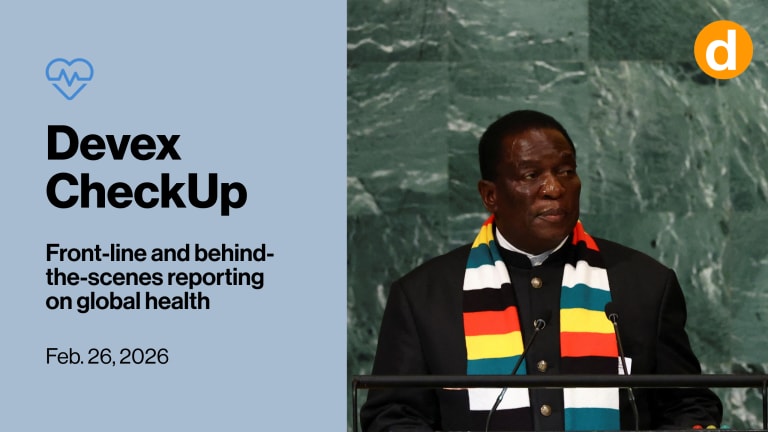An estimated 1.3 million people in Zimbabwe are afflicted with HIV/AIDS by the end of 2007, according to the United Nations Joint Program on HIV/AIDS and World Health Organization.
Being among the top five countries in sub-Saharan Africa with the highest AIDS prevalence, one would think the government would be battling the epidemic with urgency and zeal. Reports seem to suggest the contrary.
The running tally in the region is as follows: South Africa with 5.7 million people infected with HIV, Nigeria with 2.6 million, Mozambique 1.5 million, and Tanzania with 1.4 million.
Of $1.7 million in AIDS levies collected since February 2009, Zimbabwe's National AIDS Council has only spent a measly $20,000 in purchasing lifesaving antiretroviral drugs.
Where did the rest of taxpayers' money go? On luxuries, SW Radio Africa revealed, citing figures reported by state-owned newspaper Herald.
In Zimbabwe, workers are levied an AIDS tax much like an income tax. Government policy imposes that half of levies collected should be allocated to buy drugs. Apparently, the council has instead spent exorbitant sums on foreign trips, luxury cars, fat paychecks and overhead expenses.
Ironically, the government of Zimbabwe has vowed not to squander internationally sourced health funding – but how about money coming off the pockets of its own citizens?
The Global Fund to Fight AIDS, Tuberculosis and Malaria approved $37.9 million for Zimbabwe this August, after rejecting the landlocked African country's funding request for three years.
As a safety net perhaps, the Global Fund assigned the U.N. Development Program as fund administrator, a function previously performed by the council.
Over several years, the Global Fund has consistently channeled more than half its funds to sub-Saharan Africa but it has not been without considerable trouble, as the Zimbabwean example shows. Fund mismanagement and other irregularities have plagued health financing to Africa.
In August 2005, the Global Fund suspended $150 million in grants to Uganda after discovering that more than $1.6 million have been embezzled, misappropriated, or gone unaccounted for.
Uganda created an anti-corruption court in July 2008, which made a handful of convictions. A year on, trials continue.
The Global Fund had also rejected Kenya's bid for funding due to poor accounting of previous grants. IRIN reported that the Kenya Medical Supplies Agency had been investigated for corruption, and its chief executive has been sacked in October 2008.
But Kenya returned to the good graces of the Global Fund. It was awarded $12.71 million in May. Forfeiting funding would have had dire consequences. Kenya is 13th of 22 high-burden countries in terms of tuberculosis infection. Its procurement and distribution system has been shown to be flawed, making public access to treatment highly erratic in spite of a high rate of detection and cure.
More recently in August, the Global Fund found that almost $1 million in anti-malaria drugs in Tanzania had gone missing or expired.
The Global Fund allocates a quarter of all international financing for AIDS globally, two-thirds for tuberculosis and three quarters for malaria. It has provided $15.6 billion for more than 572 programs in 140 countries since it was created as a global public-private partnership in 2002, making it the largest financier for these diseases.
It has vowed to create a code of conduct that would clarify good business practices and hopefully deter corruption in the supply chain.
A bulk of development aid from a lot of major donors and funders continue to flow into Africa, and rightfully so, with the needs of the region being unarguably immense. It is undeniably terrible, however, if the state of affairs is marked by impropriety that do not benefit those in need at all.
Ugandan broadcaster and journalist Andrew Mwenda has been brutally frank about how aid from the West has pushed up corruption in Africa.
"Aid has destroyed the concept of civil society in Africa," he was quoted by Times Online as saying. "What exists are the NGOs. They are bureaucracies committed to the interests of donors. Cut off the foreign aid and 90 per cent will disappear."








